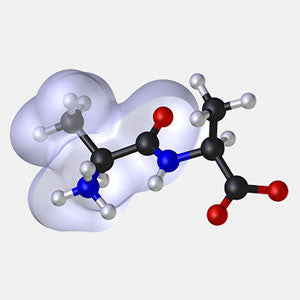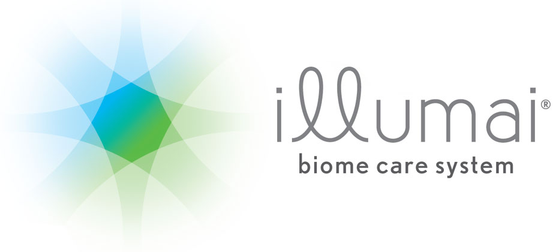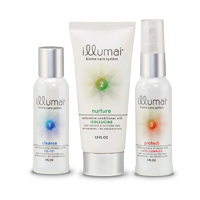New Mamas: Nurturing Your Baby With a Healthy Microbiome

Your baby is here. What a journey! Now it is time to heal, rest and embrace your baby with lots of love and good health.
Maybe you’ve heard of the “fourth trimester” – it’s the first few months of life, and it’s an extremely important time for you and your baby. Believe it or not, in addition to all of the other things that you are already doing for your newborn, you are also educating her about her immune system – teaching her what is healthy and imparting a blueprint she’ll take through life. Through birth itself, and the simple (and sometimes not so simple!) act of breastfeeding and snuggling, you are not only feeding your baby milk and love, but also a healthy microbiome. Let me explain:
The microbiome is the microscopic ecosystem made up of bacteria, antimicrobial peptides and natural oils that live on all of the body’s surfaces – like the skin, scalp, mouth, gut, scalp, and vagina. A healthy microbiome is filled with good bacteria (also called probiotics), natural oils and immune protectors. It acts as the first defense against infections and prevents the overgrowth of bad bacteria (like staph aureus) and fungus (like yeast or candida). A healthy microbiome promotes good skin, hair, digestion, urinary, and reproductive health. For new moms, an imbalance in the microbiome might cause a host of problems for mom, like vaginal or urinary infections, skin rashes, brittle hair and digestive problems. Meanwhile, problems with a baby’s microbiome may lead to colic, baby rashes, cradle cap and thrush. Research suggests that an imbalance in the microbiome might also play a role in longer term issues for baby – like asthma, eczema and allergies.
A baby is not born with an already established microbiome – it actually needs to be cultivated and grown! In the womb, a baby lives in a sterile environment. Once born, she is immersed in a world filled with lots of microscopic things like bacteria, dust particles and dirt. During these first few months of life, the baby’s skin, gut and other surfaces become populated by this bacteria (ideally the good, protective kinds) and learn to make natural immune protectors – with much assistance from mom.
You see, mom feeds her baby a healthy microbiome through many routes. The first one is during the birth itself-- most notably in vaginal deliveries. On the way out of the sterile womb, the baby travels through a vaginal canal filled with good bacteria, lipids and immune protectors that coat the baby’s skin on the way into the world, seeding her microbiome for the future (sometimes known as the “probiotic gulp”). Now that we know how important this process is, some hospitals have adopted “vaginal seeding” for c-section births (aka “c-section seeding”). Since they’ve missed the trip down the birth canal, vaginal secretions are rubbed on the baby’s skin to try to boost the newborn microbiome.
Mom also gives the microbiome essential nourishment through the act of breastfeeding. As the baby suckles on the breast, she seeds both her mouth and gut with mom’s microbiome – thus initiating her digestive system’s microbiome. Also, fascinating new research suggests that a certain type of complex sugar found only in human breast milk is not even digested by the baby. It is thought to literally be in the milk solely in order to feed the good bacteria in the baby’s gut!
Even acts of loving the baby spreads mom’s microbiome to her baby. Kisses spread the microbiome living in mom’s saliva, while snuggling skin-to-skin shares the microbiome living on mom’s skin!
So, thank you, mama for feeding your baby with such goodness – love, nourishment AND a healthy microbiome!
How can you gift your baby with the healthiest of microbiomes? Here are some important tips!
Rest, heal and nourish yourself! Keeping your immune system strong helps your body continue to make the necessary peptides and oils that keep the good bacteria around and the bad ones away.
Add probiotics into your diet. Yogurt, sauerkraut, kombucha and other fermented foods are delicious and packed with good bacteria that help populate the microbiome.
Try to minimize excessive sugar intake. Generally, the bad bacteria and yeast thrive in sugar rich environments.
Choose very mild soaps and shampoos. Believe it or not, most soaps and shampoos (even many organic and sulfate-free types), by nature of them being cleansers, breakdown fat and oil and help remove them for your skin and scalp. The trouble is that by removing the oils and peptides, we also remove the immune protectors that our body beautifully creates.
Look carefully at the moisturizers, hair conditioners and products that you are using. They often contain many artificial ingredients and silicone-like chemicals. They can coat the skin surface and inhibit the body’s microbiome from thriving.
Try to minimize skin and hair products for baby. Baby products for your baby aren’t always necessary! For baby rashes, dry skin, and cradle cap, first try using nature’s best baby product – a few drops of breast milk. It is the perfect baby moisturizer – and chock full of natural oils, probiotic boosters, and immune protectors.
Hug your baby! You are literally feeding your baby’s skin with so many important good bacteria and immune protectors. For bottle-fed and/or formula fed babies, rest assured, you are also feeding your baby with your microbiome! If possible, try to give them snuggle time on the breast skin-to-skin each day. Kiss your baby! The healthy microbes that live in our mouth– and on our saliva – are also a great way to feed your baby’s microbiome.
Isn’t nature fantastic?!
Learn More . . .

What are Sulfates? And Why Should You Care if a Shampoo is Sulfate-Free?
Sulfates, such as sodium lauryl sulfate (SLS), are chemicals used to create strong detergents. Because they are such efficient cleansers and degreasers, sulfates are commonly used in manufacturing and construction industries to clean heavy machinery.

Detox Your Locks!


